Rhodes Scholar has always been one for the books
It seemed that every day the mail brought a new offer for Allyssa Lamb. Cornell, Bryn Mawr, Columbia, Oberlin—every school considering her application wrote back to say “yes.” As an African American honors student in the top 5 percent of her high school class, she was in demand across the nation.
But the financial aid offers told a different story. Most schools required loans or work-study her freshman year. As the daughter of a single parent, she did not want to saddle her mother with debt. Facing the transition to a new style of learning, she also didn’t want to work her freshman year.
Then there was the Bothell High School student’s “backup” choice—the University of Washington just across the floating bridge from her Eastside home. The state of Washington offered her a “Washington Promise” scholarship if she stayed in state to study. Resident tuition would be only one-quarter of what the private schools were charging. She decided it would be best to live at home and attend the UW.
At Bothell High, the counselors put up a map for graduating seniors. Each was supposed to use a pin to mark his or her college destination. The staff was surprised when Lamb pushed her pin on Seattle. “I was disappointed to be going to the UW,” she admits. “It was expected that I would be going somewhere more ‘prestigious.’ “
Just four years later, Lamb was facing another choice-where to attend graduate school. But this time the decision was made for her-she is one of only 32 U.S. college students who will be attending Oxford University this fall on a Rhodes Scholarship, the oldest and most prestigious international scholarship for undergraduates in the world.
“In second grade a teacher’s aide told me, ‘You read too much.’ I lived in the Bothell Library. I grew up in that place.”
Allyssa Lamb
Instead of battling traffic jams on the 520 bridge, she will be strolling down the cobblestone streets of the oldest university in the English-speaking world. While she won’t miss the commute, she says she will miss the unique academic community at the UW that nurtured her.
“It has been an amazing experience. Obviously, I don’t regret coming here at all,” she says. “I’ve been able to work with an amazing group of people.”
When Lamb applied to the UW in the fall of 1999, the school hadn’t had a Rhodes Scholar in 14 years. When she got the news last November that she would be going to Oxford, she joined Emma Brunskill and Elizabeth Angell, UW students who won in 2001 and 2002 respectively.
She also joins former President Bill Clinton, former senator and NBA All-Star Bill Bradley, singer and actor Kris Kristofferson, NATO commander and presidential candidate Gen. Wesley Clark, former prime ministers of Canada and Australia, author Naomi Wolf, film director Terrence Malick, and a host of other Rhodes Scholars who have gone on to shape the world we live in.
As a finalist among 963 nominees from 366 U.S. universities and colleges, Lamb will get two years of free tuition at Oxford. The Rhodes Trust will also pay her a stipend of about $30,000 a year for travel, room and board, and other expenses. There is an option to extend the scholarship for a third year.
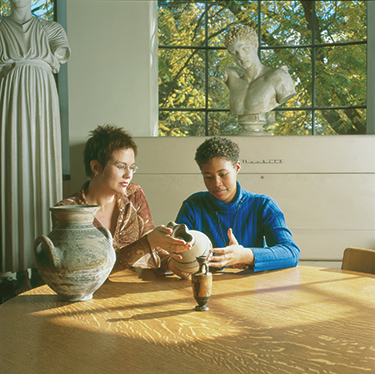
Classics Professor Sarah Culpepper Stroup (left) and Allyssa Lamb discuss archaeological artifacts similar to those found at a dig at Tel Dor, Israel. Stroup asked Lamb to join her and other students excavating the Bronze Age ruins.
An honors student (3.94 G.P.A.) with a double major in classics and in Biblical and ancient Near Eastern studies, Lamb can read Latin, ancient Greek, biblical Hebrew and hieroglyphics.
Once she breaks through her initial shyness, the 23-year-old can charm the stuffiest academic with her enthusiasm and knowledge. In an everyday conversation, she can jump from discussing her favorite history tome (Peter Green’s 970-page account of Hellenistic history, Alexander to Actium) to analyzing Hollywood’s casting of Brad Pitt as Achilles in the upcoming film Troy. (“It’s horrible. He’s too old. Achilles should be 17,” she laments.)
What comes across most strongly (and what the Rhodes committees undoubtedly detected) is her tremendous love of learning. She started reading at age 2, beginning a lifelong obsession with books.
“You couldn’t keep me away from books,” she recalls. “I took a book with me everywhere. In second grade a teacher’s aide told me, ‘You read too much.’ I lived in the Bothell Library. I grew up in that place.”
Second grade was also when she fell in love with ancient history. “My grandfather was always sending me books. He sent me this book on Egypt called Land of the Pharaohs,” she says. Meant for students at the junior high and high school reading levels, Lamb read the book twice and found the topic fascinating. “Something sort of clicked,” she recalls.
In middle school, while most girls experimented with the latest fashions and makeup, she had a make-your-own hieroglyphics kit. In high school, she says she was one of the “geeks” who quietly sat in the back of the class. At times she knew more about a historical subject than her teacher.
At the UW she came into her own. She took ancient Greek and Biblical Hebrew. The classics department awarded her two James Greenfield Scholarships. The Greenfield Endowment also helped finance travel expenses for the spring quarter in Rome program. Professor Sarah Culpepper Stroup invited her along to an archaeological site in Israel, digging among the Bronze Age ruins at Tel Dor.
“I still haven’t absorbed it all. My mother is on the moon somewhere, she’s so proud and happy. For me, it won’t be real until I get there.”
Allyssa Lamb
Asked about her mentors, she rattles off a long list of faculty and staff who made an impact: Paul Scotton, Catherine Connors, Larry Bliquez and Ruby Blondell in classics, Scott Noegel in Near Eastern languages and literature, Mona Pitre-Collins and Nichole Fazio in the Office of Undergraduate Education.
But when some of them suggested that she try for a Rhodes Scholarship, Lamb was skeptical. “I really didn’t expect to be nominated by the school,” she says. “I didn’t fit into the mold.”
In the will that started the scholarships 101 years ago, Cecil Rhodes stipulated that candidates must meet high academic and intellectual standards. He also required that candidates display integrity of character, interest in and respect for their fellow beings, the ability to lead and the energy to use their talents to the fullest.
The last qualification traditionally has been interpreted as a sports requirement, which is why Lamb didn’t think she fit the usual Rhodes standards. “I jog, but I’m not a part of any organized sports team,” she says.
The scholarship committees have loosely interpreted Rhodes’ stipulation on athletics and Lamb’s UW advisers told her she would still qualify. So she began the arduous application process that includes a personal statement, nomination by her university and two stages of screening interviews.
“The personal statement was tough. It is totally open-ended,” she explains. A traditional personal history would not stand out, so she decided to tell a story. She described her visit to the national museum in Naples, Italy, which has an extensive collection of ancient Roman artifacts. “Here was this fabulous Roman art, and all I could think about was the Egyptian collection. It was hidden away and not terribly obvious, but I found it,” she says. “It was an epiphany for me.”
Lamb was one of four UW students nominated for the state interviews. The screening committee is usually a mix of former Rhodes Scholars and civic leaders. They pepper each candidate with 30-45 minutes of questions and can call them back for more at the end of the daylong process.
In his biography of Bill Clinton, First in His Class, author David Maraniss describes the Rhodes interview process as “among the most peculiar enterprises in academia, equal parts dissertation defense, locker-room sizing up, television quiz show, cocktail party bull session, debating society and drawing of straws.”
What struck Lamb as particularly odd was the end of the process. The candidates must wait while the committee deliberates on the finalists. After several hours, the committee summons the candidates, who line up in front of the group. “It was just like a beauty pageant. We all had to stand in line,” Lamb says. “I had in my mind who was going to move on to the district level. I never thought it was going to be me.”
But the state committee surprised her by sending her to the district finals in San Francisco. The state interviews were on a Wednesday and the district interviews came on the following Saturday. She had a day to attend classes, pack her bags and fly to California.
“The district interviews were even more intense than the state interviews,” Lamb says. The panelists threw her tough technical questions, such as “Explain the structure of Plato’s Symposium.” Then came more open-ended queries, such as “From Classical literature, what book or play would you tell Donald Rumsfeld to read?” (Her answer: The Trojan Women by Euripides.)
Again, the candidates had to line up in front of the committee members. When the committee chair told Lamb she would be going to Oxford, “I was in shock. I just stood there,” she recalls. “It was very, very surreal.”
A month later, she says it still doesn’t seem real. “I still haven’t absorbed it all. My mother is on the moon somewhere, she’s so proud and happy. For me, it won’t be real until I get there.”
Lamb plans to attend Merton College at Oxford and study Egyptology. Her interests focus on the Hellenistic period of Egyptian history from Alexander the Great’s conquest to Cleopatra’s downfall.
After Alexander’s death, one of his favorite generals, Ptolemy, started a dynasty over Egypt. Though the royal family spoke Greek at home, they also took on many of the traditions of the ancient pharaohs. “You have people from different cultures in contact with each other, trying to get along in an uneasy balance,” Lamb says.
“I’m particularly intrigued by cultural identity. What did it mean to be Greek and Egyptian?”
In the long term, Lamb hopes to earn a Ph.D. and teach someday. One of the Rhodes panelists asked her if burying herself in ancient history and culture was the best choice. Shouldn’t she be “more visible” as a role model for other young African American women, he asked. “That was probably the toughest question anyone asked me,” Lamb says.
“I had to think hard about it. I finally said something I truly believe, and that is that is it is best to lead by example. If I make a contribution to Egyptology someday, I may inspire others to follow an academic path,” she says.
But Lamb doesn’t have to wait. Her story was picked up by the Associated Press and spread across the nation-along with her picture. Jet Magazine has already noted her achievements. President Lee Huntsman told her story in a recent commentary published in the Sunday Seattle Times. Her success is already inspiring others to study hard, love books and follow their dreams.
Rarified air: UW Rhodes Scholars since 1960
One was Bill Clinton’s best friend at Oxford, another was the subject of an angry editorial in The Times of London. One presides over a media giant, another is a university official who moonlights as a poet and musician. Over the last 40 years, the University of Washington has seen at least 12 Rhodes Scholars among its graduating seniors, including three since 2000. Our records may be incomplete, but here is an update on those we’ve been able to track down.
Jack V. Haney, ’62
Seattle
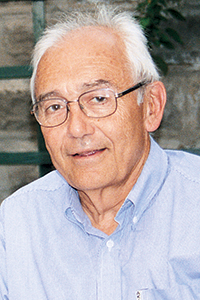 As a UW student, Haney faced History Professor Giovanni Costigan on one Rhodes screening committee and UW President Charles Odegaard on another. He impressed them all, winning a Rhodes Scholarship and spending two years studying Russian at Queen’s College at Oxford. In 1965 he returned to the UW as a professor of Slavic languages and literature, where he taught for 37 years before retiring in 2002. He is the author of the six-volume text The Complete Russian Folk Tale. In 2001 he was named a Supernumerary Fellow of Queen’s College, Oxford, in recognition of his contributions to scholarship, especially his work on Russian folk tales. Of his time at Oxford, he says, “I loved the camaraderie of the college. There are many fellow students that I am still in contact with.”
As a UW student, Haney faced History Professor Giovanni Costigan on one Rhodes screening committee and UW President Charles Odegaard on another. He impressed them all, winning a Rhodes Scholarship and spending two years studying Russian at Queen’s College at Oxford. In 1965 he returned to the UW as a professor of Slavic languages and literature, where he taught for 37 years before retiring in 2002. He is the author of the six-volume text The Complete Russian Folk Tale. In 2001 he was named a Supernumerary Fellow of Queen’s College, Oxford, in recognition of his contributions to scholarship, especially his work on Russian folk tales. Of his time at Oxford, he says, “I loved the camaraderie of the college. There are many fellow students that I am still in contact with.”
William T. Kerr Jr., ’63
Des Moines, Iowa
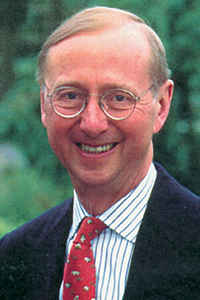 A native of Seattle, Kerr was the first person in his family to attend a university. He never considered applying for a Rhodes Scholarship, but legendary History Professor Giovanni Costigan noticed his name was missing from the UW nomination list. “He grabbed me one day in the hallway and said, ‘Why don’t you apply.’ I’m grateful that I took his advice,” Kerr recalls. At Oxford he studied medieval and Renaissance English history at New College and also met his wife, Mary. “We met at a sherry party and have been married 37 years,” he says. When he returned to the U.S., Kerr began working on a Ph.D. in history at Harvard, but a summer experience in business changed his career goals and he transferred to the Harvard Business School. “I was considered a bit of an apostate to academe,” he says. Kerr worked as an investment banker and a management consultant before the New York Times Co. asked him to join its management team. He was running that company’s magazine division when Meredith Corp., publisher of Ladies Home Journal, Better Homes and Gardens, offered him an executive vice president’s spot in their Des Moines headquarters. Today Kerr is the CEO of a $1 billion media giant that owns 16 magazine franchises and 13 TV stations. He credits both the UW and Oxford for his success. “The University of Washington had a tremendously formative impact on my intellectual awakening. Oxford magnified that,” he says.
A native of Seattle, Kerr was the first person in his family to attend a university. He never considered applying for a Rhodes Scholarship, but legendary History Professor Giovanni Costigan noticed his name was missing from the UW nomination list. “He grabbed me one day in the hallway and said, ‘Why don’t you apply.’ I’m grateful that I took his advice,” Kerr recalls. At Oxford he studied medieval and Renaissance English history at New College and also met his wife, Mary. “We met at a sherry party and have been married 37 years,” he says. When he returned to the U.S., Kerr began working on a Ph.D. in history at Harvard, but a summer experience in business changed his career goals and he transferred to the Harvard Business School. “I was considered a bit of an apostate to academe,” he says. Kerr worked as an investment banker and a management consultant before the New York Times Co. asked him to join its management team. He was running that company’s magazine division when Meredith Corp., publisher of Ladies Home Journal, Better Homes and Gardens, offered him an executive vice president’s spot in their Des Moines headquarters. Today Kerr is the CEO of a $1 billion media giant that owns 16 magazine franchises and 13 TV stations. He credits both the UW and Oxford for his success. “The University of Washington had a tremendously formative impact on my intellectual awakening. Oxford magnified that,” he says.
Frank Aller, ’68
Deceased
A native of Spokane, Aller was a brilliant student of Chinese, recalls fellow Rhodes Scholar Jack Haney. “He was also one of Bill Clinton’s best friends at Oxford,” Haney adds. Aller was also a confirmed pacifist and became a Vietnam War draft resister. Because of Aller’s convictions, Bill Clinton called him “one of the bravest, best men I know.” In a 1970 letter, Aller wrote, “I hoped that the spectacle of young men refusing to fight would somehow ‘move the conscience of America.’ “ He was arrested for his refusal to be inducted into the military but the case was later dismissed when physicians determined he was not fit to serve. Soon after that ruling, he committed suicide in September 1971.
Eric Dahl, ’75
Athens, Georgia
Dahl grew up in Colville in the northeast corner of the state. An English major at UW, he attended Oxford’s St. Peter’s College, studying poetry, literature and linguistics. “At Oxford it was like the story of the sorcerer’s apprentice. I was interested in writing poetry and wanted to read early poetry, so I explained to the Warden of Rhodes House, somewhat inaccurately, that I wanted to study etymology-the history of word meanings. I had no idea that he would arrange things so that my senior tutor was Robert Buchfield, the editor of the Oxford English Dictionary,” Dahl recalls. While at Oxford, one of his poems, “The Tumbler,” won the Isis Poetry Prize as the best short poem of the year. He returned to the UW to earn a Ph.D. in medieval texts in 1978 and then worked in the UW’s Office of Research. Today he is associate vice president for research at the University of Georgia. “My job has typically been to tear apart complex problems, analyze situations, assimilate relevant ideas from other people who are smarter than me and try to achieve consensus about what makes sense—which is really not all that different from trying to understand multiply attested medieval manuscripts,” he says. Out of the office, Dahl is a poet and a musician. He has released two CDs of his music: “Knack for Negligence” and “Whatever the Jungle.” He also collaborated with UW Professor Jack Haney on the first English translation of a 13th century Russian poem, The Campaign of Price Igor.
Bror Saxberg, ’80
Beverly Hills, Calif.
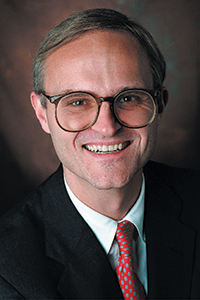 Saxberg, son of UW Business Professor Borje Saxberg, majored in electrical engineering and mathematics at the UW He also took pre-med and was the UW President’s Medalist in 1980. At Oxford, he studied mathematics at Merton College. He then went on to earn a Ph.D. in electrical engineering and computer science from the Massachusetts Institute of Technology and an M.D. from Harvard Medical School-at the same time. “I wanted to understand how the visual system works. Altogether, it took me about eight years to get both degrees,” he says. He spent five years at McKinsey and Company, an international management consulting firm, before he moved into education. He is now the chief learning officer of K12, a company that helps create “virtual academies” for learning and is active in about 12 states. “I’m what you call the learning architect. We figure out for each grade level the ‘bones’ of the operation. We look at ways to use books, computers, other media, adults and other students to make a real learning environment,” he says. Saxberg says the scholarship changed his career goals. “People should be ready to engage the world and take on the hard challenges to really help,” he says. “In my case, it’s how to help kids get a great education no matter where they are.”
Saxberg, son of UW Business Professor Borje Saxberg, majored in electrical engineering and mathematics at the UW He also took pre-med and was the UW President’s Medalist in 1980. At Oxford, he studied mathematics at Merton College. He then went on to earn a Ph.D. in electrical engineering and computer science from the Massachusetts Institute of Technology and an M.D. from Harvard Medical School-at the same time. “I wanted to understand how the visual system works. Altogether, it took me about eight years to get both degrees,” he says. He spent five years at McKinsey and Company, an international management consulting firm, before he moved into education. He is now the chief learning officer of K12, a company that helps create “virtual academies” for learning and is active in about 12 states. “I’m what you call the learning architect. We figure out for each grade level the ‘bones’ of the operation. We look at ways to use books, computers, other media, adults and other students to make a real learning environment,” he says. Saxberg says the scholarship changed his career goals. “People should be ready to engage the world and take on the hard challenges to really help,” he says. “In my case, it’s how to help kids get a great education no matter where they are.”
Steven Crown, ’80
Seattle
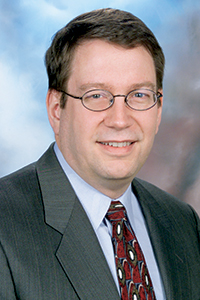 A native of Kalama, Crown double majored in Russian and history at the UW. He was an exchange student in Russia in 1978 while enrolled at the UW and took time off to work for a joint venture between U.S. and Soviet fishing interests. Crown studied Russian at Queen’s College in Oxford, where he took to the English tutorial system of higher education. “I loved it. It was a dream come true,” he says. He also found time to row on the college’s crew team. After his studies at Oxford and one year working for the Rhodes Trust, he entered Yale Law School, where he specialized in Soviet law and earned his degree in 1987. The new lawyer worked for the Seattle law firm of Preston, Gates and Ellis before starting out on his own, specializing in Soviet and then Russian law. He had a front-row seat for the collapse of the Soviet Union, traveling to that nation about 70 times over a 10-year period. “I knew it was decayed. I just wasn’t ready for it to crumble so quickly,” he says. In 1998 he joined the legal team at Microsoft, where he is an associate general counsel for the Windows Client Legal Team. “It’s a dream legal job that combines the best of two worlds, academics and law,” he says.
A native of Kalama, Crown double majored in Russian and history at the UW. He was an exchange student in Russia in 1978 while enrolled at the UW and took time off to work for a joint venture between U.S. and Soviet fishing interests. Crown studied Russian at Queen’s College in Oxford, where he took to the English tutorial system of higher education. “I loved it. It was a dream come true,” he says. He also found time to row on the college’s crew team. After his studies at Oxford and one year working for the Rhodes Trust, he entered Yale Law School, where he specialized in Soviet law and earned his degree in 1987. The new lawyer worked for the Seattle law firm of Preston, Gates and Ellis before starting out on his own, specializing in Soviet and then Russian law. He had a front-row seat for the collapse of the Soviet Union, traveling to that nation about 70 times over a 10-year period. “I knew it was decayed. I just wasn’t ready for it to crumble so quickly,” he says. In 1998 he joined the legal team at Microsoft, where he is an associate general counsel for the Windows Client Legal Team. “It’s a dream legal job that combines the best of two worlds, academics and law,” he says.
Peter Glomset, ’80
Southborough, Mass.
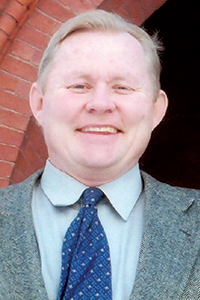 Son of UW Medicine Professor John Glomset, Peter triple majored in English, comparative literature and Spanish when he was an undergraduate at the UW. He spent three years at St. John’s College at Oxford, where he earned two degrees in Renaissance English. “The English tutorial system is a wonderful way to teach writing and to learn how to think critically,” he says. “It reoriented me as to what my teaching should be.” After his studies at Oxford, he came back to the UW, where he finished his Ph.D. in English in 1992. He taught writing in the UW’s interdisciplinary writing program for three years before traveling to Senegal to teach at the Université Cheikh Anta Dip on a Fulbright Fellowship. He also taught at Villanova University before moving to the Boston area, where he teaches at St. Mark’s School in Southborough, Mass. He remembers best the freedom at Oxford. “You are not exhausted by taking classes all the time. That’s what I found transformative about it. You had the freedom to follow your interests,” he says.
Son of UW Medicine Professor John Glomset, Peter triple majored in English, comparative literature and Spanish when he was an undergraduate at the UW. He spent three years at St. John’s College at Oxford, where he earned two degrees in Renaissance English. “The English tutorial system is a wonderful way to teach writing and to learn how to think critically,” he says. “It reoriented me as to what my teaching should be.” After his studies at Oxford, he came back to the UW, where he finished his Ph.D. in English in 1992. He taught writing in the UW’s interdisciplinary writing program for three years before traveling to Senegal to teach at the Université Cheikh Anta Dip on a Fulbright Fellowship. He also taught at Villanova University before moving to the Boston area, where he teaches at St. Mark’s School in Southborough, Mass. He remembers best the freedom at Oxford. “You are not exhausted by taking classes all the time. That’s what I found transformative about it. You had the freedom to follow your interests,” he says.
Jean McCollister, ’82
Battle Ground, Ind.
The first woman from the UW to become a Rhodes Scholar (the scholarship was only open to men until 1977), McCollister was a double major in zoology and Slavic languages and literature at the UW. She also broke the gender barrier at the UW and at Oxford by playing rugby on the men’s teams. The Oxford team, called Oxford Old Boys, let her play wing at practice, but when they tried to put her on the field during a game, the other side protested and she was forced to sit out the match. “To make things a thousand times worse, some journalist was there, the tabloids picked up the story, and everything got blown up way out of the proportion,” she recalls. “I was the subject of a disapproving editorial in The Times as well as a stern warning letter sent to the Old Boys by the head of the England Rugby Football Union.” Forced out of the male leagues, she later captained one of the first women’s rugby teams in the UK. At Oxford, she studied Soviet environmental policy while enrolled at Sommerville College (then one of three all-women colleges). She later attended the University of Ljubljana in what is now Slovenia, where she witnessed the breakup of Yugoslavia. “I got married in Ljubljana Castle a week before it was bombed by the Yugoslav army after Slovenia declared its independence,” she says. She divides her time between that nation and Indiana, where her husband is on the faculty at Purdue University. McCollister is a journalist, a teacher of English, a translator and an author. She is writing a book “based on a long-distance alpine hike across Slovenia” that covers her 15 years in that country. “For me the Rhodes served as a stepping stone to a life outside the U.S., which I had always hankered for anyway. Once I left for Europe, I never really expected to come back,” she says.
Michael Anderson, ’85
London
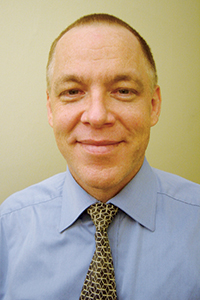 Anderson grew up on Lummi Island near Bellingham, and was a commercial fisherman while he attended the UW, studying political science. In 1985, before he left for Oxford, he was named the UW’s President’s Medalist. He spent two years at St. John’s College in Oxford studying anthropology and then a year at the University of London studying law. Even as a Rhodes Scholar, he returned every summer to continue commercial fishing with his father and brother. He currently works for the British government in the Department for International Development and chairs an international committee that is looking at how humanitarian organizations can better respond to states that collapse, such as Somalia or Liberia. He also teaches part-time at the London School of Economics. “The most terrific thing about the Rhodes Scholarship is that it is so generous,” he says. “It creates the space that allows us to do the work.”
Anderson grew up on Lummi Island near Bellingham, and was a commercial fisherman while he attended the UW, studying political science. In 1985, before he left for Oxford, he was named the UW’s President’s Medalist. He spent two years at St. John’s College in Oxford studying anthropology and then a year at the University of London studying law. Even as a Rhodes Scholar, he returned every summer to continue commercial fishing with his father and brother. He currently works for the British government in the Department for International Development and chairs an international committee that is looking at how humanitarian organizations can better respond to states that collapse, such as Somalia or Liberia. He also teaches part-time at the London School of Economics. “The most terrific thing about the Rhodes Scholarship is that it is so generous,” he says. “It creates the space that allows us to do the work.”
Emma Brunskill, ’00
Cambridge, Mass.
Emma Brunskill is now a graduate student in computer science at MIT, where she is studying artificial intelligence and machine learning. After growing up in Seattle and Edmonds, Brunskill came to the UW at age 15 as an early entry student. She majored in physics and in computer science and engineering. The honors student was also a Goldwater Scholar, a Mary Gates Scholar and an Anderson Scholar. Brunskill also served as the UW coordinator for Amnesty International. She attended Magdalen College at Oxford in the fall of 2001, where she earned a degree in neuroscience and also rowed on her college’s crew team. She spent last summer in Rwanda, where she helped an international program put computers in the schools of that African nation. “At MIT we have mostly scientists and engineers. At Oxford I met tons of people with different career goals and backgrounds. It opened up my eyes to a lot of things I hadn’t considered before,” she says. After completing her Ph.D., Brunskill plans to teach or work on issues of technology in international development.
Elizabeth Angell, ’02
Oxford, England
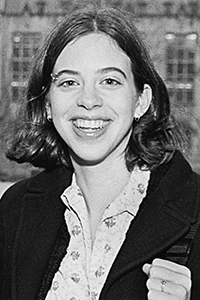 The Bainbridge Island native was an early entry student at the UW who double majored in international studies and history. She now attends Merton College at Oxford, where she is studying modern history and plans to also earn a degree in modern Middle Eastern studies. She is particularly interested in modern Turkish history and the transition from the Ottoman Empire to the modern Turkish state. “I miss the Jackson School,” she says, “I was working in an interdisciplinary and inter-regional framework. It was a really interesting environment to be in.” She says the best part of the Rhodes Scholarship is “meeting the most amazing people. I’ve made many friends with other Rhodes Scholars from other countries.” Eventually she plans to get a Ph.D. in international studies or history and teach.
The Bainbridge Island native was an early entry student at the UW who double majored in international studies and history. She now attends Merton College at Oxford, where she is studying modern history and plans to also earn a degree in modern Middle Eastern studies. She is particularly interested in modern Turkish history and the transition from the Ottoman Empire to the modern Turkish state. “I miss the Jackson School,” she says, “I was working in an interdisciplinary and inter-regional framework. It was a really interesting environment to be in.” She says the best part of the Rhodes Scholarship is “meeting the most amazing people. I’ve made many friends with other Rhodes Scholars from other countries.” Eventually she plans to get a Ph.D. in international studies or history and teach.